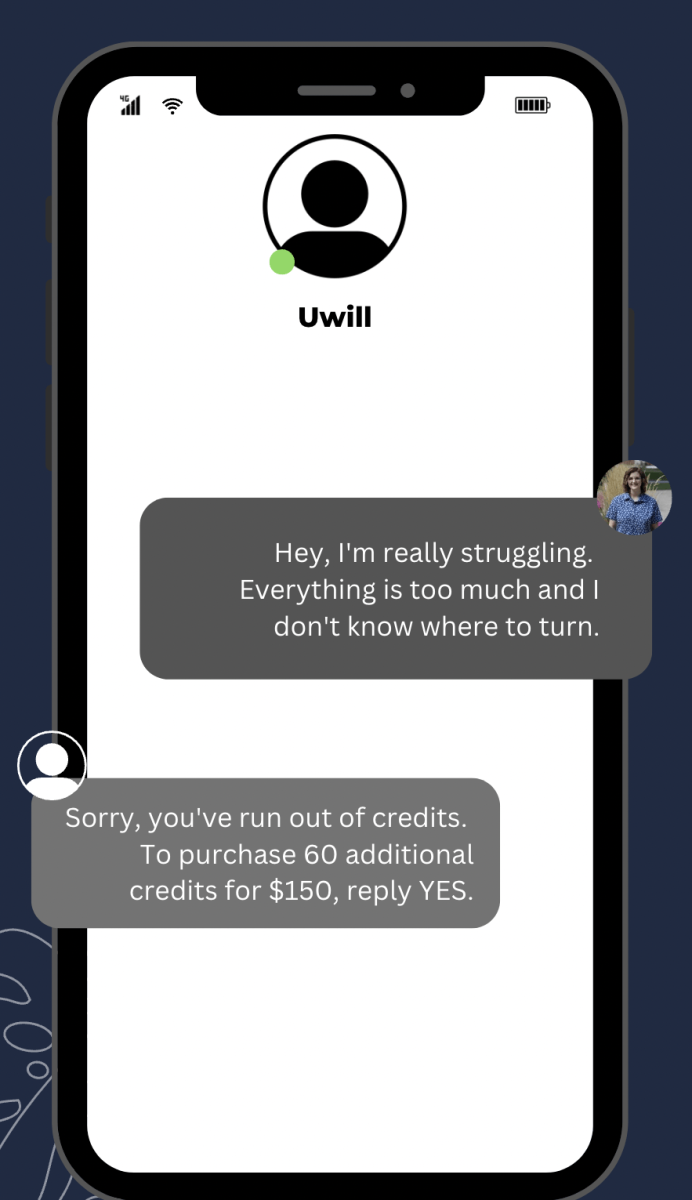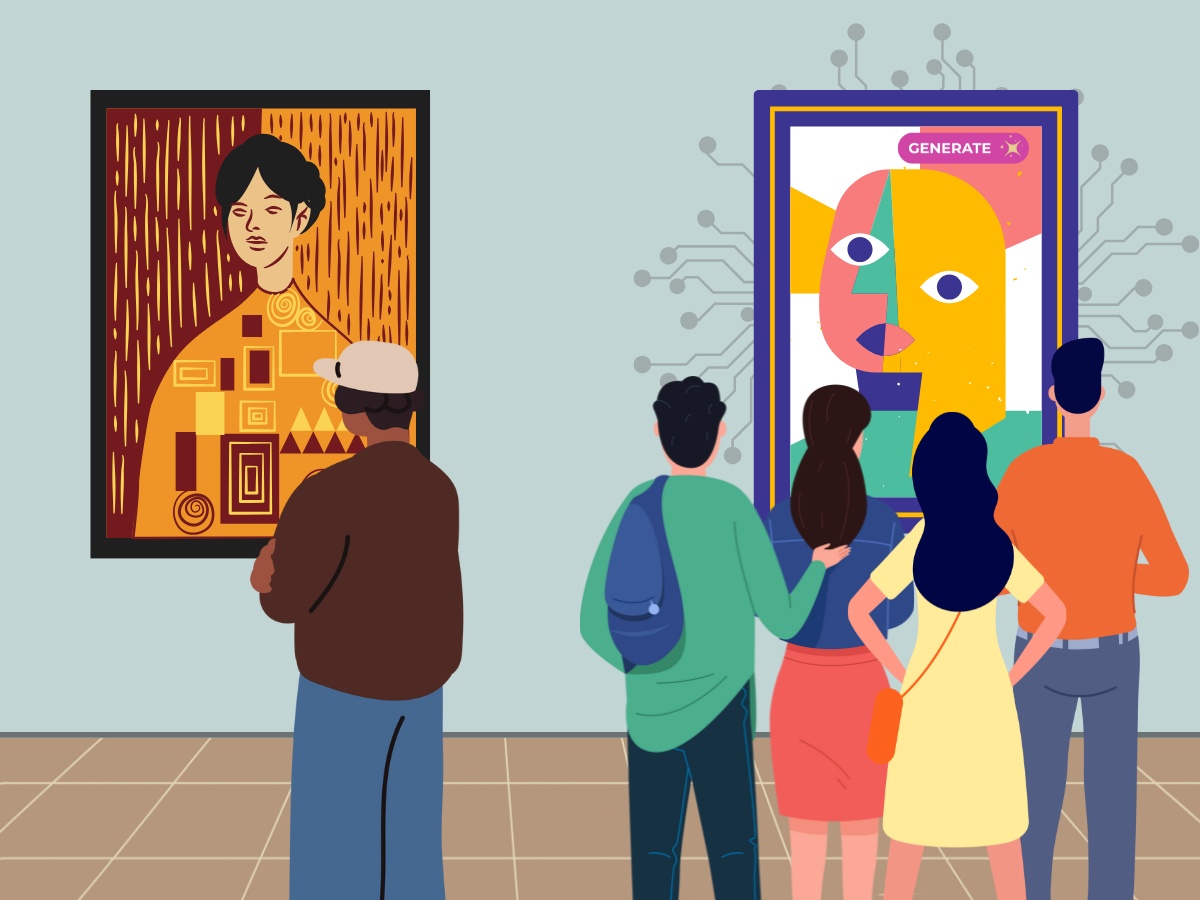CONTENT WARNING: This article talks about mental health issues, such as the author’s experience with depression and suicidal ideation. If you or someone you know is struggling, there is hope. Call 988 if you are feeling suicidal.
As a young child, I did not know what the world had in store for me. I was certainly not coming out of the womb thinking, “Yes! I get to be depressed my whole life!”
Yet, that has been my experience throughout most of my life. I was severely bullied for a lot of things I could not control (such as my weight, the fact I wear glasses, etc.), which led to the negative perception I had of myself.
Having grown up in a broken home certainly did not help, either. I am one of the students that are part of a sad statistic relating to mental health. Needless to say, I know a lot about mental health.
However, I would like to point out that while I know a lot about my mental health, my experience is vastly different from the experiences of other people. That is part of the reason why mental health assistance is tricky; what works for one person might not work for the other.
This is why it is important to approach each person’s experience as such. There is no “one way” to help someone, but there are things not to do. Some of these things might be related to how you manage stressors (for example, do not pick your nails. It’s not healthy for the nail!).
Mental health is one of those things that is hard to manage. No matter how many self-help books you read, no matter how many therapists you talk to, and no matter how much you pray, it is just as hard to manage my mental health as it was before doing these things. What these things have taught me, however, is how to manage it.
For some people, college is where they learn to do this. Or, college is where their mental health starts to deteriorate. There are a lot of theories for why this is; some of it is due to the pressure the U.S. education system puts on success, lack of proper mental health support and world circumstances. Colleges and universities have recognized this, Drake included. However, they have made a drastic change that can harm more students than help.
Students have had a few options when it comes to mental health and how Drake can help them. There are CARE reports, which is a system in which any mandatory reporter (RAs, professors, etc.) can “flag” you to the counseling center. However, you do not have to have a CARE report written to get help. There are several different ways that you can contact the counseling center; having a CARE report written just means that someone from the counseling center will reach out to you.
Something that I think is important for recovery is consistency. At Drake, it is hard to get that consistency with a counselor because they are so busy. I am fortunate enough to have been seeing my therapist for a while (he was there for all of the lore after 8th grade), but I have experiences with the resources that Drake offers.
The resources that Drake offers are great if you can get into them. The Drake counseling center has its hearts in the right place, and they truly do the most for the students. Most students, at least the ones I have talked to, would not mind paying a little bit more to help the counseling center.
However, with little-to-no transparency, Drake has rolled out a new “Student Wellness Fee” of $150 per semester. With this new fee comes new services. The question I have is, “Is this fee worth it?” Is this service meant to allow more pay for the counselors that Drake currently has, so the issues facing the counseling center are lessened?
Yes and no, at least from my understanding.
The fee is for a shiny new service called Uwill. With it comes two free counseling sessions that are available anywhere, anytime. In addition to that comes Urise, which “…has on-demand curated wellness events to complement therapy. This service will allow all…access [to] mental health and wellness support 24/7/365,” according to Chief Student Affairs Officer Jerry Parker’s email from Jan. 23, 2023.
In addition to all of this comes a 24/7 Drake-specific crisis hotline (833-646-1526). In a way, these services are lessening the load on the counseling center. The introduction of this new service means there are two fewer sessions the counselors have to do with students.
From how I see it, Drake hopes that students utilize this service in addition to coming to the counseling center. Since I have not had the chance to utilize Uwill, I cannot attest to the functionality of it. However, I can talk about the strain this has put on students.
My issue with Uwill is not with the service. After all, how can I legitimately complain about a service I have not used? Rather, it is with how Drake announced it. Being a member of the Residence Hall Association, I had the chance to hear about this new service in late November. Jerry Parker came into one of our meetings and talked about the service. In this meeting, when I asked about how the student body would be told of the new charge, there was a lack of substantial response to my question.
I understand I cannot know everything about Drake’s plans for the student body, but this was a legitimate question not only for residents of the halls (that I serve) but for the student body. After all, some students will struggle to pay the $150 fee.
Since it was not my job to tell students about the fee that Drake is charging people, I did the next best thing: keeping an eye out to see if those people did their jobs. That answer is the same as I tell my dog when she wants my food: no.
It is the lack of proper communication about this fee that has upset most (if not all) students. However, that does not mean the service being provided should be discarded; hell, I’m not even advocating for the removal of the fee (though a price reduction would be nice). What I am advocating for is transparency from Drake’s administration.
At the very least, make a statement explaining why this fee needs to be there. If there is going to be a change in student charges, it is the responsibility of the administration to tell students in advance, not at the beginning of the spring semester. Jerry Parker did a good job explaining it to RHA but not explaining it to the student body.







